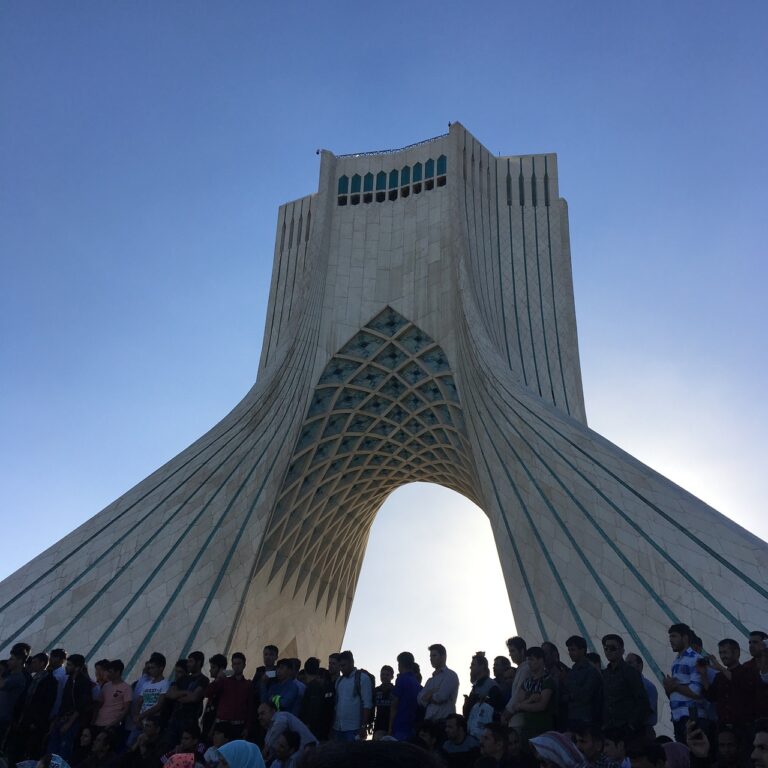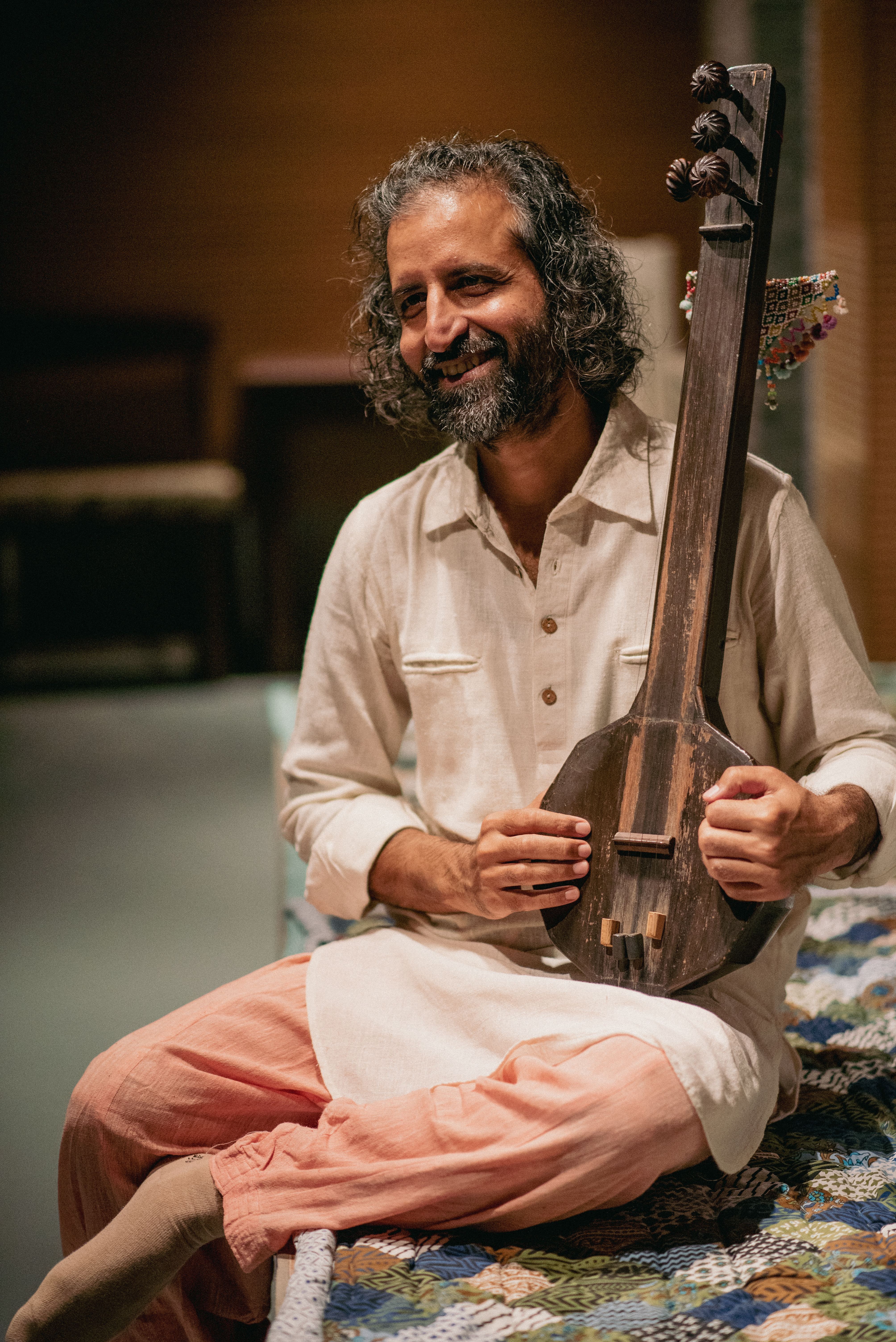
Literary Speaking: Being One with Kabir
Kabir, the revered 15th Century saint and mystical poet, lives in each person who follows and sings his songs, and that has kept alive his legacy for more than 500 years, says singer-author Vipul Rikhi.
“There is a tradition of singing Kabir songs, which has passed on from generation to generation, it’s a living tradition in the sense that others have added to it. If you sing a song and if it is powerful enough, and add ‘Kahe Kabir, suno bhai sadho’ (Kabir says, listen fellow seekers), it is embraced as a Kabir song. That’s the beauty of the Kabir tradition,” adds Vipul.
Vipul Rikhi sings folk songs of Kabir and other Bhakti and Sufi saints. He is a storyteller who narrates his insights and also translates the songs when he performs.
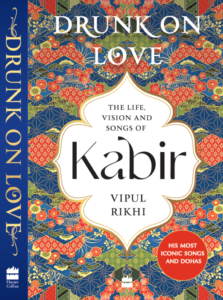 “Kabir is a force, a powerful force, which flows like a river. The people of this country have embodied this force. They are Kabir, and I am Kabir, when I sing Kabir,” he explains while discussing his remarkable book Drunk on Love: The Life, Vision, and Songs of Kabir, published by Harper Collins.
“Kabir is a force, a powerful force, which flows like a river. The people of this country have embodied this force. They are Kabir, and I am Kabir, when I sing Kabir,” he explains while discussing his remarkable book Drunk on Love: The Life, Vision, and Songs of Kabir, published by Harper Collins.
“The Kabir tradition has survived because people sing these songs and people listen to these songs. People gather for Satsang or Jagran in the night in the village chaupal (Square) or at someone’s house after the day’s work is done. They are not specialized singers, though there are those also, but they’re also ordinary people who are farmers or fruit sellers who are gathering at night to sing and to celebrate this wisdom,” Vipul shares his experiences.
“At these gatherings, there is no division between performer and audience, because everyone is a performer, and everyone is audience. When you sing together, that energy and the strength that it brings is quite remarkable,” he adds
“Though it is largely a rural tradition, it has recently come into the cities and more urban folk are waking up to it,” reveals Vipul.
Kabir was born in the city of Varanasi in the late 14th – early 15th century, in what is now Uttar Pradesh, in a weaver’s family. He was uneducated but composed songs and preached his philosophy in which he was critical of organized religion, inequalities that exist in society, and the hypocrisy of power brokers. His songs talk about spiritual growth, unity of being, and social transformation. The songs were never written but passed on orally. Written compilations of his songs appeared much later.
Kabir’s powerful verses or ‘dohas’as they are known, influenced Hinduism’s Bhakti movement, and are also found in Sikhism’s scripture ‘Guru Granth Sahib’. Kabir is also an important figure in Islam, especially in Sufism.
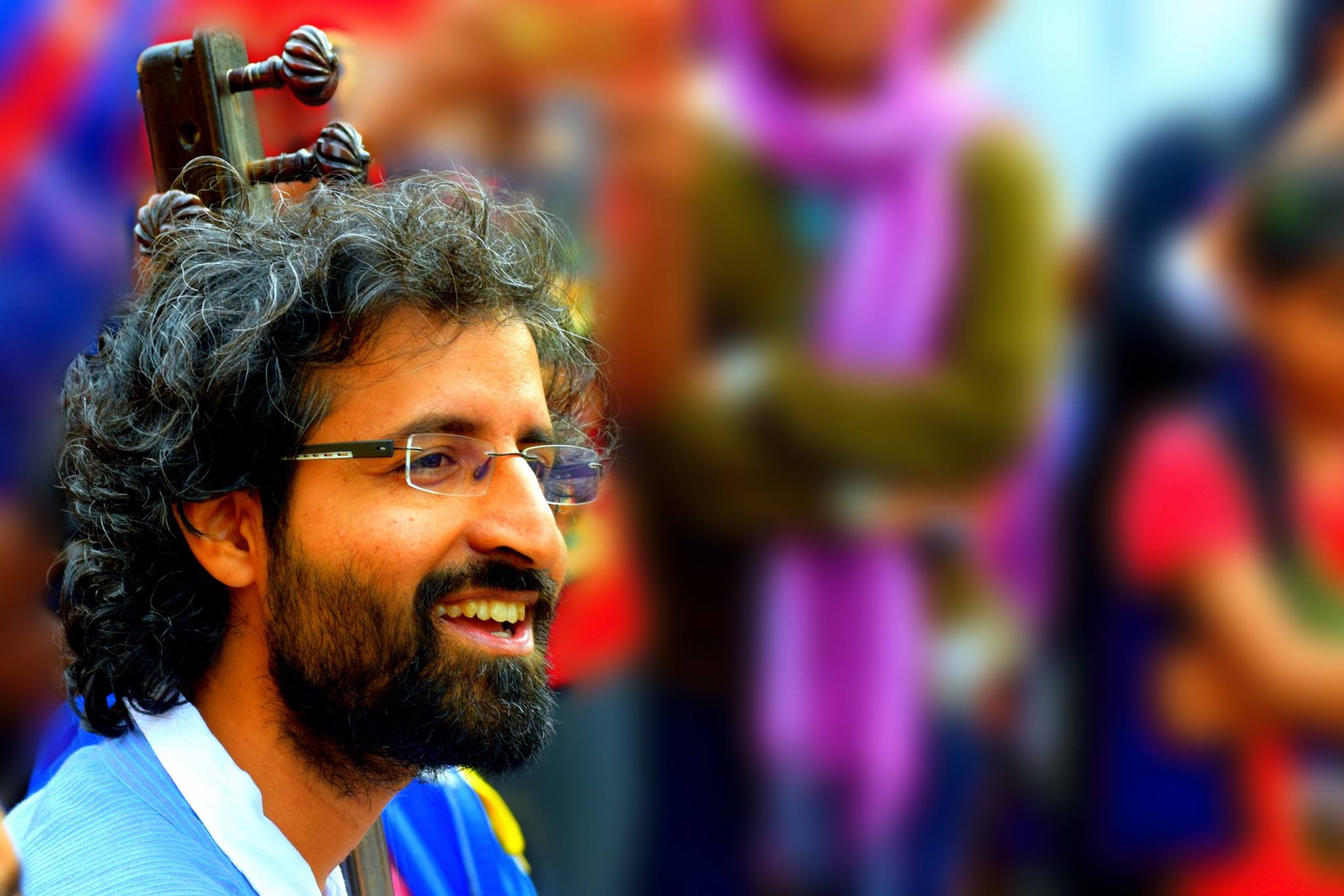
Vipul discovered the massive following which Kabir still commands, in 2008. He describes his first experience in the preface of his book “I had never heard anything like this before. It was raw, powerful, intense, immersive, absorbing, and incredibly moving- an experience that simply blew me away! It was as if Kabir himself were standing in the midst of the marketplace alternately challenging, mocking, inviting, and persuading”.
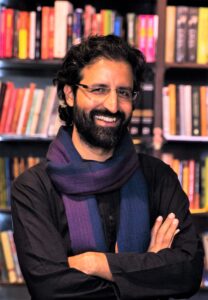 Since then, Vipul has immersed himself in such oral traditions of the country. He has been associated with the ‘Kabir Project’, which is an elaborate and ambitious effort to compile and throw some light on oral traditions of the country. Vipul has also authored five other books.
Since then, Vipul has immersed himself in such oral traditions of the country. He has been associated with the ‘Kabir Project’, which is an elaborate and ambitious effort to compile and throw some light on oral traditions of the country. Vipul has also authored five other books.
The Book is divided into broad themes representing Kabir’s philosophy – some of the themes are love, death, finding the guru, life of duality and trust in the sacred. These themes deal with the subtle aspects of life, identity, simplicity, and primacy of shabd or ‘word’.
Vipul also deals with aspects of social reform which Kabir expounded through his teachings as well as his life. He belonged to a poor family, and everyone was equal before him.
“The thing is that we try to divide and label Kabir as either a spiritual seeker or a saint or a social reformer, this or that. And it is the tendency of the mind, to divide things and categorize them and put them in separate corners. This is exactly what Kabir challenges in his poetry. He says that there are no separations. So, when he sings or he speaks the social aspect and the spiritual aspect are intimately connected, they are not divorced from each other,” explains Vipul.
“In his poetry, he often criticizes both Hindu and Muslim priests, the ritualism and the empty sort of orthodoxy, the caste hierarchies and so on. He criticizes all of this, but the basis on which he criticizes is by saying that there is only one truth and one humanity,” Vipul elaborates.
“And the truth is not an abstract idea, but you can experience it in your own body. This truth is ‘sabyasachi’, meaning we all come from one place and we all land in the same place. But we all have a delusion of duality,” reflects Vipul.
“Not much is known about Kabir, the person’s life. Kabir the person survives through legends only. The picture that these legends paint is of someone who has a lot of conviction and confidence in his own experience and what he’s saying and is able to stand up to a lot of opposition and persecution from the power brokers of that time. And that is a very inspiring sort of vision for ordinary people,” reveals Vipul.
Quoting one of his favourite verses Vipul recites
‘Mohe sun sun aave haansi
Paani mein meen pyasi’
“This translates to ‘I laugh when I hear that the fish is thirsty in water’, meaning we are surrounded by fulfilment, still, we feel we are lacking something, and we keep looking for this thing,” he explains.
Elaborating on some of the tenets of the knowledge espoused by Kabir, Vipul recites another verse
‘Han kahoo to Hai nahi, na bhi kaho na jaye,
Haan aur na ke beech mein, mera satguru raha samaye’.
This means the truth lies between yes and no, right and wrong.
‘Pothi padh padh kar jag mua, pandit bhayo na koye
Dhai aakhar prem ke, jo padhe so pandit hoye’
“According to Kabir, knowledge doesn’t lie in scriptures or books, love is knowledge, and if you can understand love, this dimension of love, then you will know what it means to be alive, what it means to relate, what it means to be a human being. These are the fundamental questions that we need to begin with,” Vipul articulates.
Kabir deals with fundamental questions and asks where have you come from? Where are you going? Look for answers in your own body. “So, Kabir always invites us back to our own body. Look into your own self and then you can touch this subtle dimension which you also call love,” expresses Vipul.
Referring to the title of his book Drunk on Love, Vipul calls it the most profound concept and the most important. “There are two things he harps on a lot. One is death and one is love. He keeps reminding us of our impermanence and that we are going to die. So, we have only this moment. We plan for ten, twenty, and even thirty years as if we are immortal. But that’s not the truth. And you know any one of us could die tomorrow. He says that to bring us to this present moment. Remember to be in this moment and to bring awareness to this moment, because this is the most important moment,” he conveys.
Also, Kabir invokes the power of love as the force that can take us beyond the endless cycle of death. But to get to love, it’s very paradoxical, you have to die to yourself. That means you have to die to your pride. You have to die to your ego, and that is when you can taste this nectar of love.
“If we can die to our ego, our attachments, our clinging, our cravings, our desires, and aversions and fears, this present moment becomes more available. And it makes the rest of our life more beautiful and adds to our ability to relate to other people, to enjoy the beauty of nature. All these simple things become more alive if we can get out of our minds and be in this moment. We live only when we die to ourselves,” adds Vipul.
To listen to the full interview, click the link below
Spotify
https://open.spotify.com/episode/145KZKBZr6AZN6qXl9AIjd?si=8Rbd9xeFSTOOff9FNtR6iQ
Apple
https://podcasts.apple.com/in/podcast/books-and-us/id1688845897?i=1000637416230
*Senior journalist



